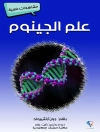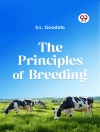Epigenetics can potentially revolutionize our understanding of the structure and behavior of biological life on Earth. It explains why mapping an organism’s genetic code is not enough to determine how it develops or acts and shows how nurture combines with nature to engineer biological diversity. Surveying the twenty-year history of the field while also highlighting its latest findings and innovations, this volume provides a readily understandable introduction to the foundations of epigenetics.
Nessa Carey, a leading epigenetics researcher, connects the field’s arguments to such diverse phenomena as how ants and queen bees control their colonies; why tortoiseshell cats are always female; why some plants need cold weather before they can flower; and how our bodies age and develop disease. Reaching beyond biology, epigenetics now informs work on drug addiction, the long-term effects of famine, and the physical and psychological consequences of childhood trauma. Carey concludes with a discussion of the future directions for this research and its ability to improve human health and well-being.
表中的内容
Acknowledgements
Introduction
1. An Ugly Toad and an Elegant Man
2. How We Learned to Roll Uphill
3. Life As We Knew It
4. Life As We Know It Now
5. Why Aren’t Identical Twins Actually Identical?
6. The Sins of the Fathers
7. The Generations Game
8. The Battle of the Sexes
9. Generation X
10. The Message Is Not the Medium
11. Fighting the Enemy Within
12. All in the Mind
13. The Downhill Slope
14. Long Live the Queen
15. The Green Revolution
16. The Ways Ahead
Notes
Glossary
Index
关于作者
Nessa Carey is a visiting professor at Imperial College in London and currently works in the biotechnology and pharmaceutical industries, where she has specialized in epigenetics for nearly a decade. She has strong relationships with leading epigenetics researchers, medical labs in Europe, and with some of the most prestigious institutions in the United States, including the Harvard Medical School, the MD Anderson Cancer Center, and the Wistar Institute.












